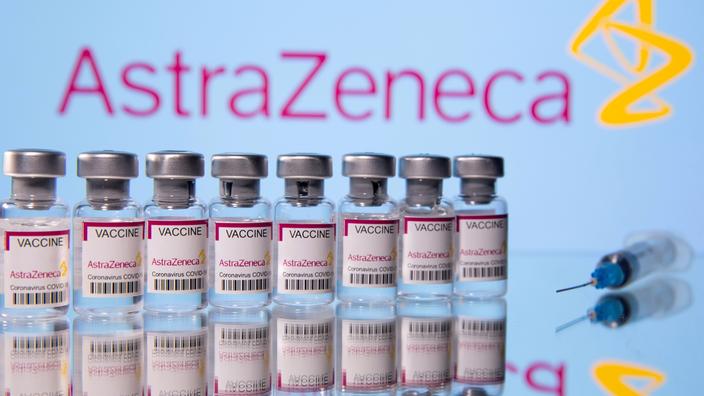An interval of several months between the first and the second dose of AstraZeneca / Oxford vaccine against Covid-19 improves the immunity provided, indicates a study published on Monday by the University of Oxford, which sees it as a "
reassuring
"
element
for countries with supply problems.
To read also: Alain Fischer: "Each dose of AstraZeneca refused represents patients, hospitalizations or even deaths which could have been avoided"
The researchers showed that far from affecting the effectiveness of the vaccine, an interval of up to 45 weeks between the two doses improved the immune response to the virus.
“
This should be reassuring news for countries with less vaccine supplies, who may be concerned about delays in getting second doses to their populations.
There is an excellent response to a second dose, even after a delay of 10 months from the first,
”commented Professor Andrew Pollard, director of the Oxford Vaccine Group which developed the vaccine with the Anglo-Swedish pharmaceutical group.
Third dose well tolerated
In February, a study from the University of Oxford published in The Lancet had already indicated that the effectiveness of the vaccine was greater with an interval of 3 months between doses (81%), than after an interval of 6 weeks. (55%). In their study published Monday, the researchers also showed that a third dose injected more than six months after the second causes a "
significant increase
" in antibodies and causes a "
sharp rise
" in the immune response against Covid-19, including included against variants.
“
It is not known whether booster injections will be necessary due to decreased immunity or to increase immunity against the variants of concern,
” said Teresa Lambe, lead author of these studies.
But the professor notes that research shows that a third dose of the vaccine “
is well tolerated and considerably increases the antibody response.
This is very encouraging news, if we find that a third dose is necessary
”.
Read also: Vaccines: to meet its objectives, the EU relies on AstraZeneca
The researchers note that the vaccine had "
fewer cases of side effects after the second and third doses than after the first
". The AstraZeneca vaccine, which uses so-called “
viral vector
” (adenovirus) technology, has raised concerns after a link was established between serum and very rare but often fatal blood clots. Many countries have suddenly restricted its use to the elderly and some have stopped using it.

